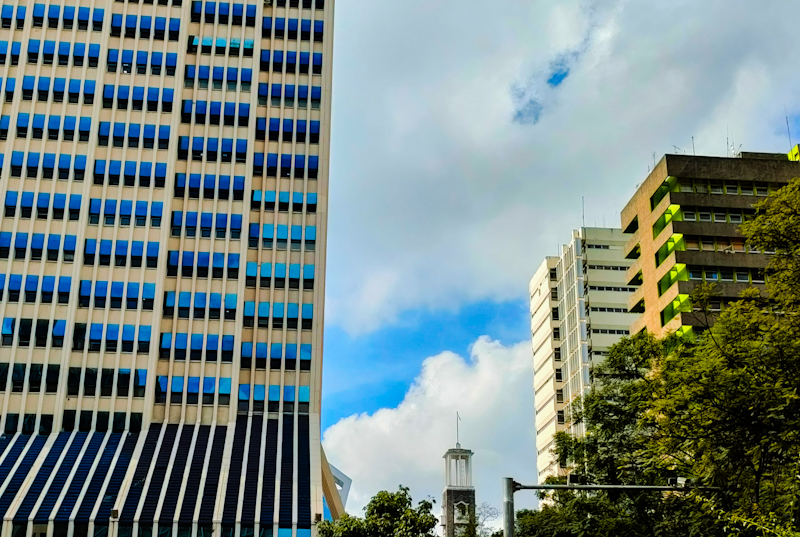The absorption of Grade A and B office space in Nairobi increased by 64 per cent according to Knight Frank’s 1st Half 2021 Kenya Market Update report.
The increase was attributed to the roll-out of vaccinations globally providing occupiers with confidence to resume looking at their occupational strategies.
During the review period, prime residential rents declined at a slower rate of 6.02 per cent over the past 12 months to June, compared to a 7.62 per cent decline in a similar period last year.
This change was attributed mainly to the reopening of the economy, roll out of vaccinations and rental terms adjustments by landlords to accept lower rental prices.
In the office market, a similar trend is evident with prime office rents decreasing marginally in the 1st half of 2021 from Ksh. 121 ($1.12) to Ksh. 119 ($1.10) per sq. ft per month.
The continued oversupply of residential developments in certain locations such as Kilimani makes the real estate sector a buyers’ and tenants’ market.
Prime residential sale prices in Nairobi marginally improved by 0.1% over the past 12 months to June 2021, compared to a 5.1% decline in comparison to a similar period in 2020. This is mainly attributed to price adjustments, encouraging signs of buyers resuming their investment plans which were halted last year due to the pandemic.
Speaking at the launch of the report, Ben Woodhams, Knight Frank Kenya MD said, “There has been a notable increase in market activity in the 1st half of 2021 and we expect prime residential sale prices and rental rates to gradually improve in the second half of 2021 due to the increased flexibility from landlords and sellers, projected positive economic growth and containment of the virus.”
Anthony Havelock, Head of Agency at Knight Frank commented, “Although the pandemic is still having an ongoing impact on working practices and the occupation of offices, there are increasing signs of both employers and their employees adapting to new flexible working patterns and a weariness to virtual meetings hence a desire to return to the formal workplace in a responsible manner.”
The ongoing pandemic and economic headwinds continued to adversely affect the retail sector as prime retail rents decreased from Ksh. 456 ($4.2) to Ksh. 134 ($4.) per sq. ft per month over the review period. The marginal decline was mainly attributed to the economic slowdown, reversal of various tax reprieves in January 2021 resulting in less disposable incomes and re-introduction of containment measures in March 2021.
Occupancy levels for retail centres averaged 70-80%, although more established malls recorded higher occupancy levels of up to 90%.
Grocery retailing remained one of the most active segments in the retail sector. Leading local and international supermarket operators continue to battle for market share dominance, through expansion and filling of the void left by outgoing or struggling retailers.




1 Comment
Pingback: Nairobi Global Trade Centre Latest Tourist Attraction Commissioned